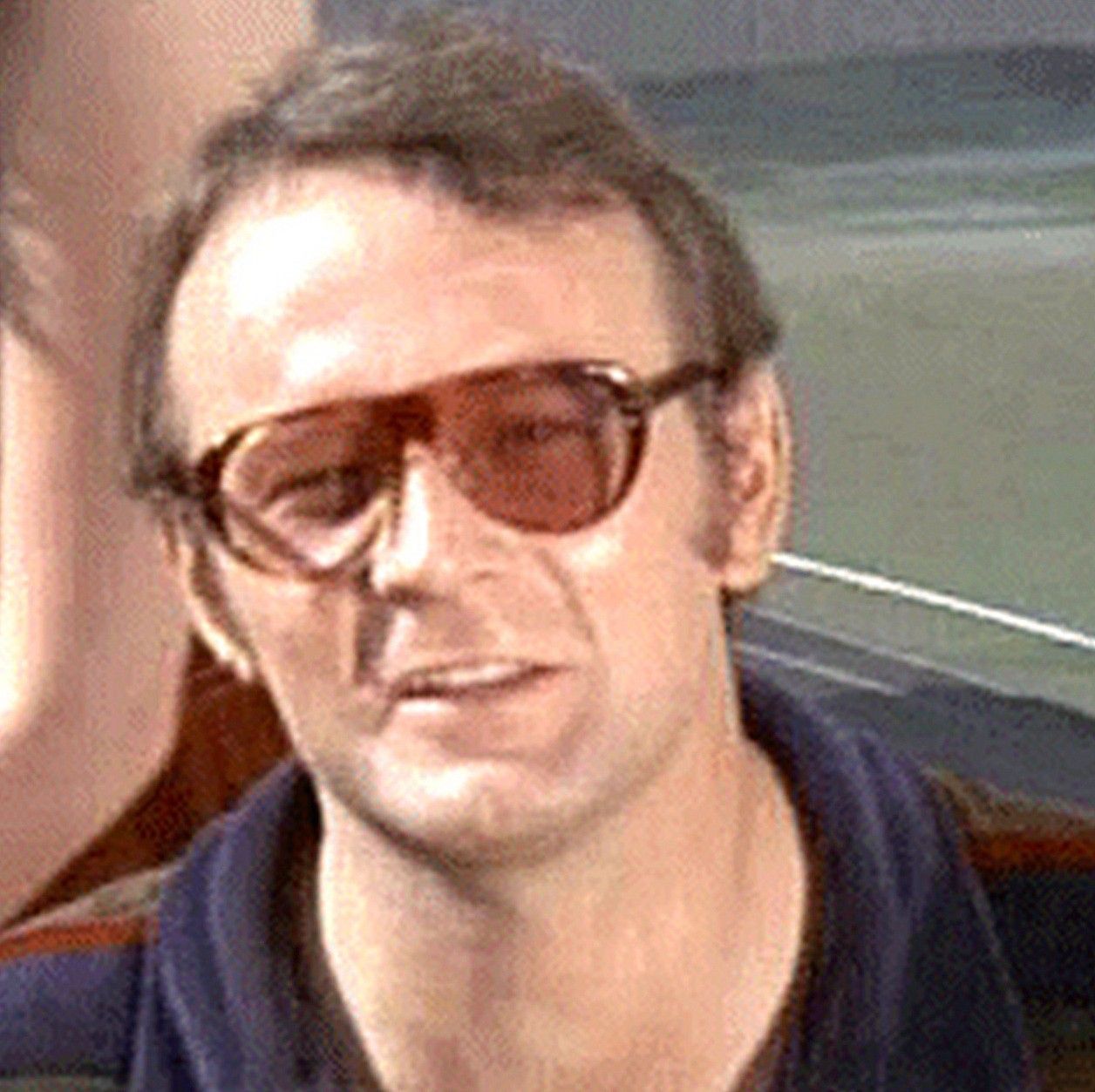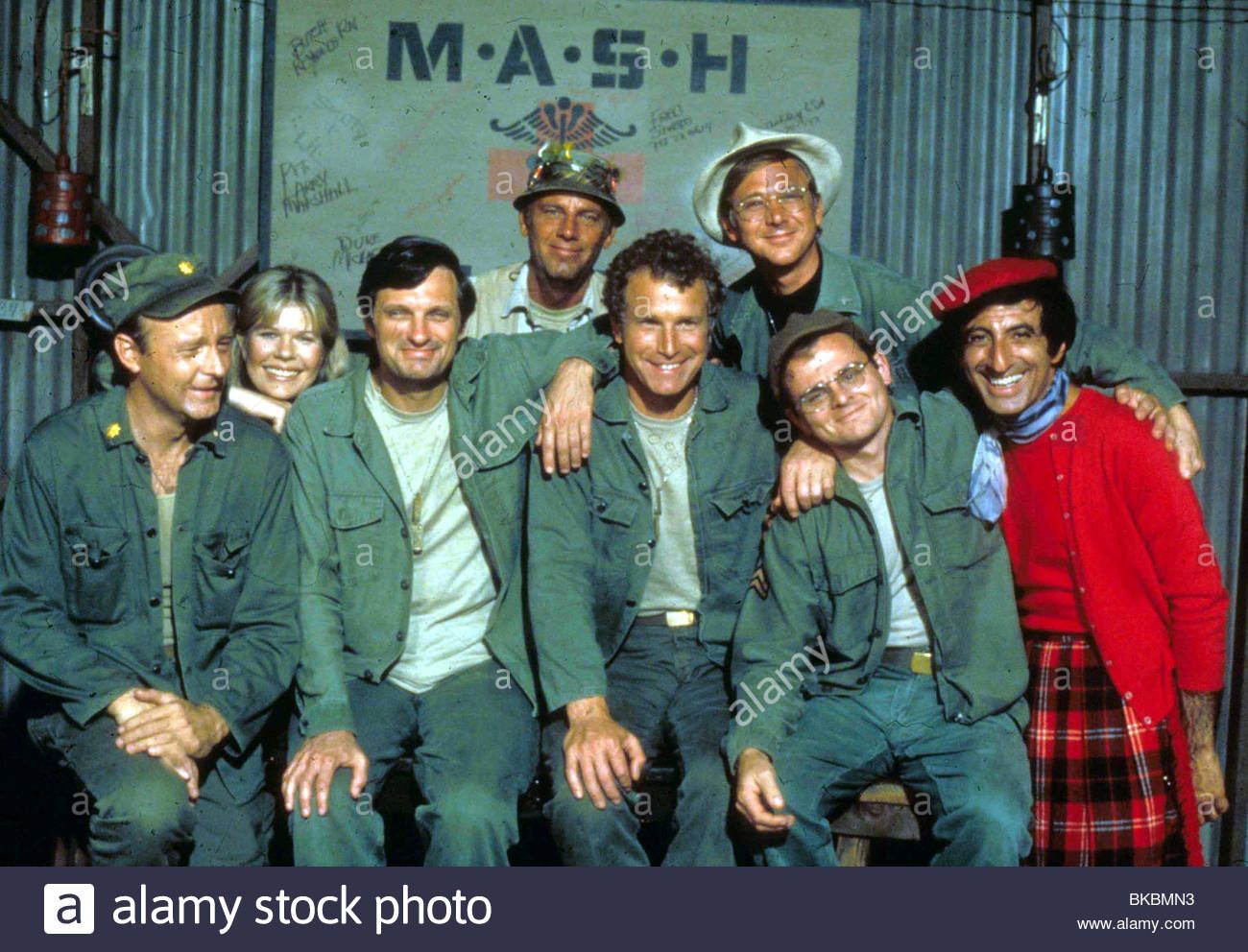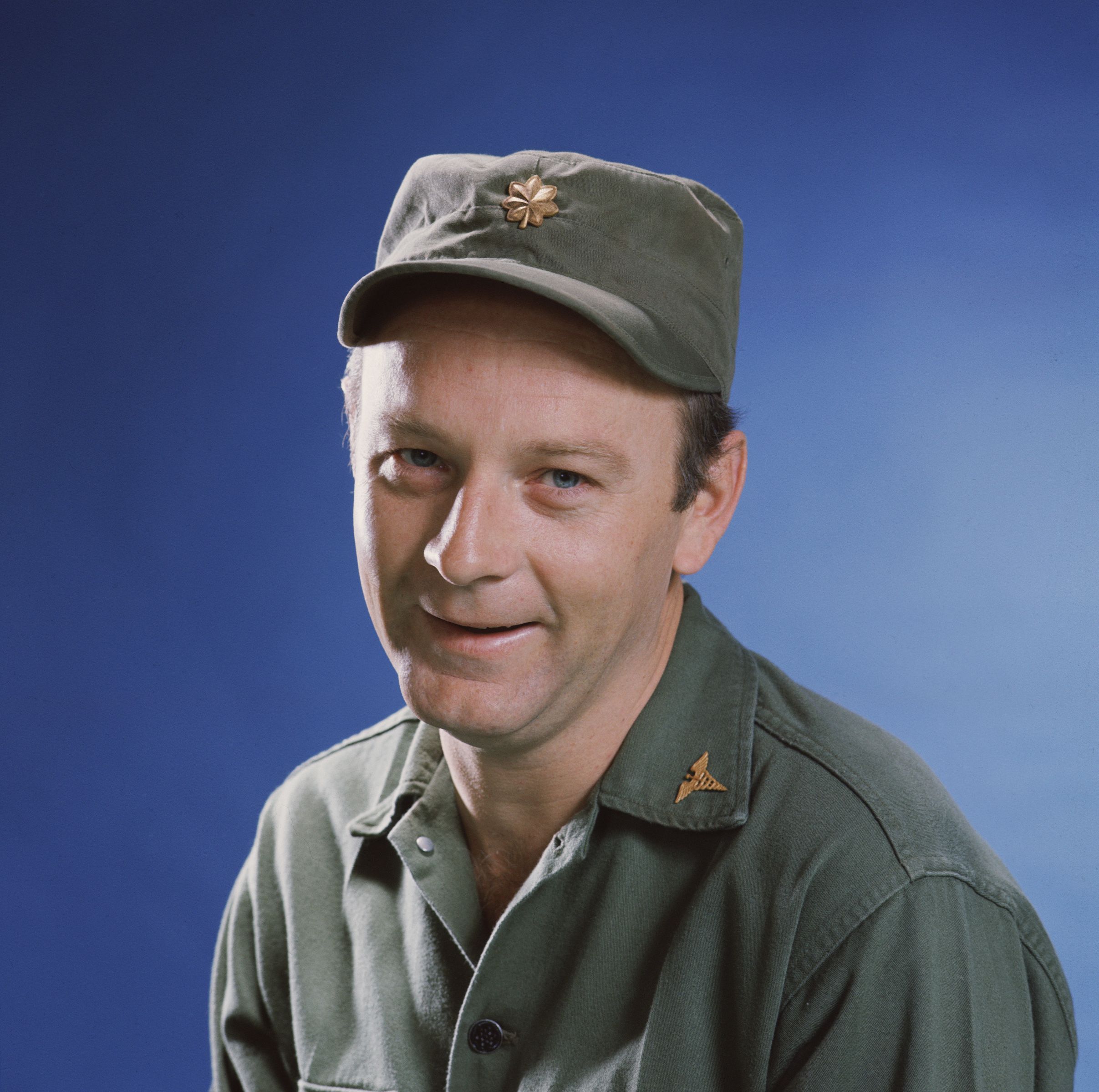Larry Linville: The Enduring Legacy Of M*A*S*H's Iconic Major Frank Burns
Larry Linville, an American actor whose face became synonymous with the curmudgeonly Major Frank Burns on the iconic CBS television series M*A*S*H, left an indelible mark on the landscape of television comedy and drama. Born Lawrence Lavon Linville, his career spanned over three decades, yet it was his portrayal of the sniveling, often-detested, yet undeniably memorable ranking surgeon that cemented his place in the hearts of millions. His work on M*A*S*H showcased a unique talent for comedic timing and character development, turning a potentially one-dimensional antagonist into a complex figure that viewers loved to hate.
Beyond the confines of the 4077th Mobile Army Surgical Hospital, Larry Linville built a diverse acting portfolio, appearing in numerous films and television shows that highlighted his versatility. While M*A*S*H remains his most recognized contribution, a deeper look into his life reveals a dedicated performer who honed his craft through rigorous training and a passion for the arts. This article delves into the life, career, and lasting impact of Larry Linville, exploring the man behind the infamous Frank Burns and celebrating his significant contributions to entertainment.
Table of Contents
- Introduction to Larry Linville's Legacy
- The Life and Times of Larry Linville: A Biography
- The Role That Defined Him: Major Frank Burns on M*A*S*H
- Beyond the 4077th: Larry Linville's Diverse Career
- A Legacy of Laughter and Drama: Film and TV Appearances
- Larry Linville's Impact on Television History
- The Final Curtain: Larry Linville's Passing and Lasting Memory
- Why Larry Linville's Work Still Resonates Today
Introduction to Larry Linville's Legacy
Larry Linville was an actor who, despite a career spanning over 70 acting credits, is overwhelmingly remembered for one iconic role: Major Frank Burns. This singular association speaks volumes about the power of his performance in M*A*S*H. The series, which followed the story of the staff of an army hospital in the Korean War, became a cultural phenomenon, earning 153 award nominations throughout its run. Within this ensemble, Linville's portrayal of the grumpy, self-important, and often comically inept surgeon stood out. He managed to make Frank Burns simultaneously detestable and, in a strange way, pitiable, a testament to his nuanced acting. His legacy is not just about the character he played, but how he embodied the essence of a particular type of bureaucratic, often hypocritical, authority figure, making him a timeless archetype in popular culture. The enduring popularity of M*A*S*H ensures that Larry Linville's work continues to be discovered and appreciated by new generations, cementing his place as a significant figure in television history.The Life and Times of Larry Linville: A Biography
To truly appreciate the artistry of Larry Linville, it's essential to look beyond his most famous role and delve into the journey that shaped him as an actor. His life began far from the war-torn setting of M*A*S*H, in the sunny climes of California, where the seeds of his passion for performance were first sown.| Detail | Information |
|---|---|
| Full Name | Lawrence Lavon Linville |
| Born | September 29, 1939 |
| Birthplace | Ojai, California, USA |
| Died | April 10, 2000 (aged 60) |
| Place of Death | New York City, New York, USA |
| Cause of Death | Pneumonia (after suffering from cancer and lung removal) |
| Nationality | American |
| Occupation | Actor |
| Known For | M*A*S*H (1972), Paper Dolls (1984), Mannix (1967) |
| Spouse(s) | Deborah Guydon, Susan Hagan, Melissa Gallant, Vaughn Taylor, Kate Geer |
| Parents | Fay Pauline (Kennedy) and Harry Lavon Linville |
Early Life and Education
Lawrence Lavon Linville was born on September 29, 1939, in Ojai, California. Shortly after his birth, his parents, Fay Pauline and Harry Linville, moved the family to Sacramento, California. It was in Sacramento that Larry spent much of his formative years, attending school and developing his early interests. He graduated from El Camino High School in 1957, a period that likely saw him begin to explore his burgeoning talent for performance. His pursuit of education didn't stop there; Linville later moved to Colorado to attend the University of Colorado at Boulder. This academic journey was pivotal, as it was during his time in college that he participated in the Royal Academy of Dramatic Arts. This prestigious training, often considered one of the world's leading drama schools, provided him with a strong foundation in acting, equipping him with the skills and discipline that would serve him throughout his long and successful career. His early life, marked by geographical shifts and a dedication to formal training, laid the groundwork for the versatile actor he would become.Personal Life and Marriages
Beyond his professional achievements, Larry Linville's personal life was also a significant part of his journey. He was married five times, reflecting a complex personal path. His wives included Deborah Guydon, Susan Hagan, Melissa Gallant, Vaughn Taylor, and Kate Geer. While the specifics of these relationships are largely private, the fact of his multiple marriages highlights a man who sought companionship and connection throughout his life. Like many in the public eye, Linville navigated the challenges of personal relationships alongside the demands of a high-profile career. His biography, exploring these aspects, helps paint a fuller picture of the individual behind the celebrated character of Frank Burns, reminding us that even public figures lead rich and multifaceted lives beyond the screen.The Role That Defined Him: Major Frank Burns on M*A*S*H
When one mentions Larry Linville, the immediate association for most is Major Frank Burns. This character, a grumpy ranking surgeon who held a strong, albeit unrequited, affection for Margaret Houlihan, became a cornerstone of the M*A*S*H ensemble. Linville's portrayal was so effective that Frank Burns became one of the most memorable antagonists in television history, embodying the frustrations and absurdities of military bureaucracy and personal insecurity within the chaos of war. His interactions with Hawkeye Pierce (played by Alan Alda) and Trapper John McIntyre (Wayne Rogers, later B.J. Hunnicutt played by Mike Farrell) were central to the show's comedic and dramatic tension.Frank Burns's Enduring Appeal (and Frustration)
Major Frank Burns was designed to be unlikable. He was pompous, cowardly, self-righteous, and often incompetent, especially when compared to the brilliant, albeit unconventional, surgeons like Hawkeye. Yet, Larry Linville imbued him with a certain pathetic charm that made him more than just a caricature. His constant, unreciprocated infatuation with "Hot Lips" Houlihan, his unwavering loyalty to military regulations even when they made no sense, and his often-comical attempts to assert authority made him a source of both frustration and immense comedic relief. Viewers loved to see him get his comeuppance, but they also recognized the underlying human flaws that drove his behavior. This complexity, crafted by Linville's performance, is why Frank Burns remains such an enduring and iconic character in television history, embodying the absurdity that M*A*S*H so expertly satirized.Departure from M*A*S*H
Despite the character's immense popularity and his central role in the show's dynamic, Larry Linville left M*A*S*H in 1977 after his contract expired. This decision marked a significant turning point for both the actor and the series. While M*A*S*H continued for several more successful seasons, Linville's departure was driven by a desire to explore new acting opportunities and avoid being typecast. He felt that the character of Frank Burns had reached its creative limits and that he had taken the portrayal as far as he could. This decision, while bold, allowed Linville to pursue other roles and demonstrate his range beyond the confines of the 4077th. His exit paved the way for new characters and dynamics within M*A*S*H, but the void left by Frank Burns's unique brand of antagonism was undeniable.Beyond the 4077th: Larry Linville's Diverse Career
While Major Frank Burns remains his most iconic role, Larry Linville's career was far more expansive than just M*A*S*H. He was an actor with over 70 acting credits to his name, showcasing a versatility that often gets overshadowed by the immense success of the war comedy-drama. Before and after his tenure on M*A*S*H, Linville appeared in a wide array of television shows and films, demonstrating his ability to tackle different genres and character types. His work ranged from dramatic roles in series like *Mannix* (1967) to lighter fare, proving he was a performer capable of much more than just comedic villainy. This extensive body of work underscores his dedication to his craft and his continuous pursuit of diverse acting challenges throughout his career spanning over three decades.A Legacy of Laughter and Drama: Film and TV Appearances
Larry Linville's filmography is a testament to his enduring presence in Hollywood. Beyond his defining role, he graced both the big and small screens in various capacities. He appeared in many films and TV shows, showcasing his range. For instance, he was seen in the quirky sci-fi comedy film *Earth Girls Are Easy*, a departure from the serious themes of M*A*S*H. On television, his presence was felt across different eras and genres. He made appearances in popular series such as *Lois & Clark: The New Adventures of Superman*, where he likely took on a more dramatic or guest-starring role, and the beloved sitcom *Night Court*, which would have allowed him to flex his comedic muscles in a different setting. His television work also included appearances in shows like *Paper Dolls* (1984), a drama that offered a stark contrast to his comedic roles. He also lent his talents to crime dramas, including an episode of *CHiPs* with Erik Estrada, Larry Wilcox, Robert Pine, and Leif Garrett, where Ponch and Jon continue pursuing roller skating smash and grab thieves, and Jon helps a famous musician who is exhausted and disillusioned, while Ponch is running out of time to find celebrities for the CHP Skate with the Stars charity. Furthermore, he appeared in an episode of *Murder, She Wrote* alongside Angela Lansbury, Joel Brooks, and Ron Dean, where Jessica is charged with contempt after being subpoenaed to testify at a grand jury probe of a brokerage house, then released on a technicality, she has to dodge further subpoenas while finding out who killed the man they think she talked to. These roles, though perhaps not as prominent as Frank Burns, collectively illustrate the breadth of Larry Linville's talent and his consistent contribution to the entertainment industry, making him a recognizable and respected character actor for decades.Larry Linville's Impact on Television History
Larry Linville's impact on television history extends far beyond his individual performances. As a key member of the M*A*S*H cast, he was part of a show that transcended typical sitcoms, blending comedy with poignant anti-war messages. The M*A*S*H movie is a classic, and the TV show remains beloved to this day, largely due to its exceptional cast members, among whom was Alan Alda, who played Hawkeye Pierce and is known as one of the most liked people in the industry. While there were tensions among the cast members on the set of the show, Linville's portrayal of Frank Burns was instrumental in establishing the dynamic that made M*A*S*H so compelling. His character served as the perfect foil, highlighting the humanism and wit of the other characters. The longevity and critical acclaim of M*A*S*H mean that Larry Linville's work continues to be broadcast and streamed, influencing new generations of viewers and aspiring actors. He demonstrated how a supporting character, even an unlikable one, could become indispensable to a show's success and cultural resonance. His legacy is intertwined with one of the most significant television series ever produced, showcasing how a well-executed performance can elevate a program to legendary status.The Final Curtain: Larry Linville's Passing and Lasting Memory
Sadly, the entertainment world lost Larry Linville on April 10, 2000, in New York City, New York, USA. He was 60 years old at the time of his passing. The cause of death was pneumonia, which he contracted after a period of illness; Linville had suffered from cancer and had undergone a lung removal. His death marked the loss of a talented actor whose contributions to television, particularly through his unforgettable role as Major Frank Burns, had brought laughter and thought-provoking moments to millions. The news of his death was met with sadness by fans and colleagues alike, who remembered him not just for his on-screen persona but also for his professionalism and dedication. Larry Linville's passing served as a reminder of the fragility of life and the lasting impact that artists have through their work. While we've lost several cast members from both the M*A*S*H film and the series over the years, Linville's memory, like that of his fellow castmates, continues to be cherished by those who grew up watching and loving the show. His legacy lives on through the countless reruns and streaming availability of M*A*A*S*H, ensuring that his unique talent will continue to be appreciated for generations to come.Why Larry Linville's Work Still Resonates Today
The enduring appeal of Larry Linville's most famous character, Major Frank Burns, and indeed his broader body of work, speaks to a timeless quality in his acting. In an era where complex characters are highly valued, Linville's portrayal of Burns offers a masterclass in creating a character that is simultaneously frustrating and, in his own way, endearing. He captured the essence of human flaws – insecurity, arrogance, and a desperate need for approval – in a way that resonated with audiences then and continues to do so today. His work in M*A*S*H is a prime example of how even a seemingly negative character can contribute significantly to a narrative's depth and comedic timing. The show's ability to blend humor with serious themes of war and humanity was greatly enhanced by the contrasting personalities within the 4077th, and Frank Burns was essential to that balance. Larry Linville's commitment to his craft, his ability to fully inhabit a character, and his contribution to one of television's most beloved series ensure that his legacy remains vibrant. He reminds us that true acting often lies in the subtle nuances, the ability to make an audience feel a range of emotions, even towards a character they are meant to dislike. His career serves as an inspiration, showcasing the power of performance to create lasting cultural touchstones.Larry Linville's journey from a young man in Ojai, California, to an actor celebrated for one of television's most memorable characters, is a testament to his talent and dedication. While his portrayal of Major Frank Burns on M*A*S*H will forever be his defining role, his extensive career and diverse acting credits paint a picture of a versatile performer who left a significant mark on the entertainment industry. His ability to evoke strong reactions from audiences, whether laughter or exasperation, is a hallmark of his enduring appeal.
- Jayshree Web Series
- Evan Cohen Espn Wife
- Wwxxcom Reviews 2024
- Remoteiot Web Ssh Raspberry Pi Download
- Baashaal Telegram
As we reflect on his contributions, it's clear that Larry Linville was more than just an actor; he was a craftsman who helped shape a golden era of television. We invite you to share your favorite memories of Larry Linville or Major Frank Burns in the comments below. What did his performance mean to you? Explore more articles on iconic television figures and the shows that defined generations right here on our site.

Pictures of Larry Linville

Pictures of Larry Linville

Pictures of Larry Linville